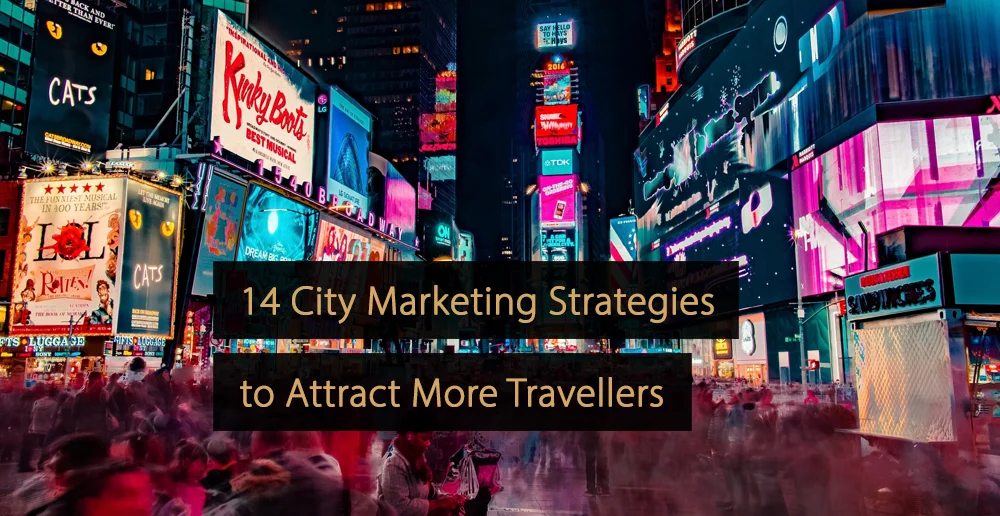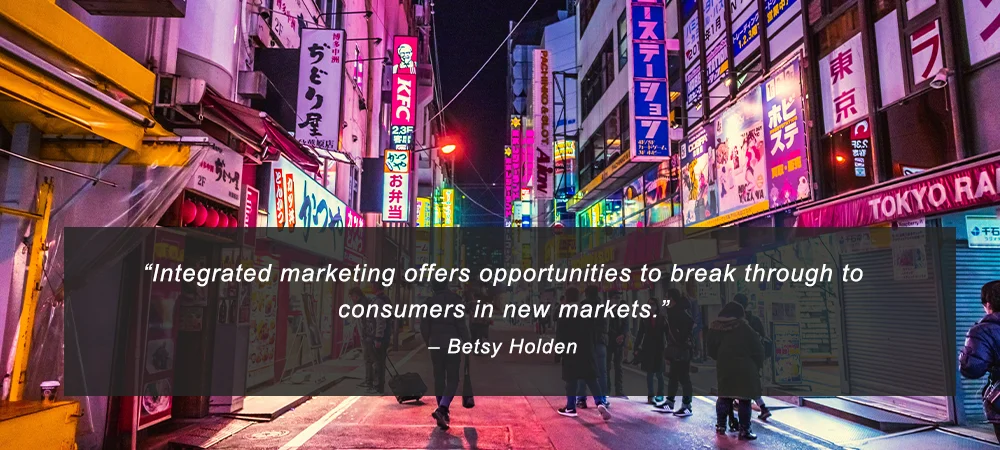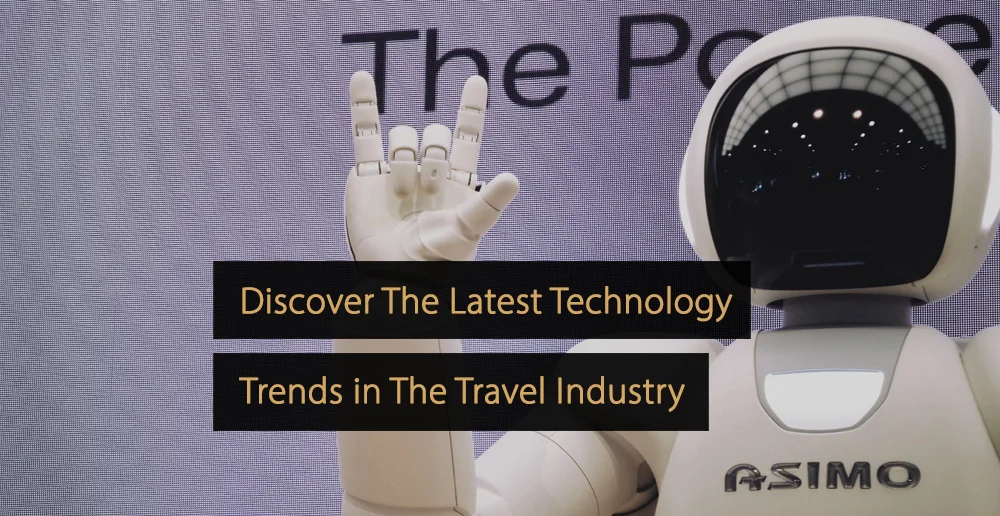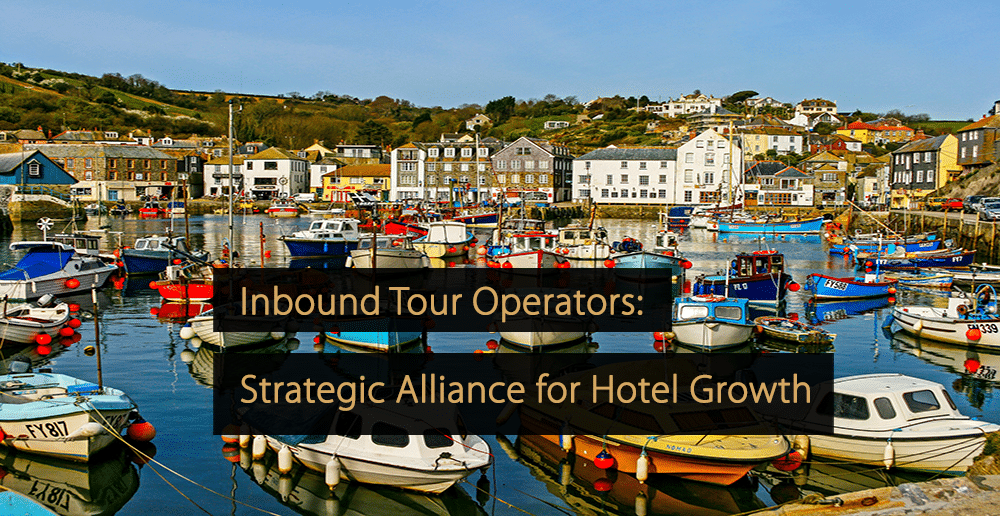Effective city marketing strategies can assist local governments, tourist boards, hotels, travel companies, and other businesses by helping to attract more travelers to the city in question. In this article, you will learn more about city marketing, what it entails, and some of the main techniques that can help you boost tourism.
Table of Contents:
- What is City Marketing?
- Why is City Marketing Useful and Important?
- What is the Difference Between City and Destination Marketing?
- Who is Responsible for City Marketing?
- 14 City Marketing Strategies to Attract Travelers
- 1. Set Your City Apart From Alternatives
- 2. Be Clear on Your Target Audience
- 3. Adopt an Analytical Approach
- 4. Focus on City Branding
- 5. Balance the Needs of All Stakeholders
- 6. Create a Compelling Website For Your City
- 7. Devise a Search Marketing Strategy
- 8. Encourage User-Generated Content
- 9. Embrace Virtual Reality and Video
- 10. Make the Most of Social Media
- 11. Collaborate With Social Media Influencers
- 12. Use Travel Websites to Promote Your City
- 13. Invest in Other Online Advertising Plans
- 14. Promote Your City Offline Too
- Travel Trends: Opportunities for The Travel Industry
- Technology Trends Emerging in the Tourism & Travel Industry
What Is City Marketing?
City marketing refers to a marketing strategy where a specific city is promoted to attract a greater number of travelers. It may also be designed to attract business investment and/or migration to the city. Generally, the intention is for marketing efforts to make your city stand out from other cities.
Successful city marketing strategies can serve to boost the local tourism industry. Aside from helping your city to stand out, city marketing can also help to enhance or improve a city’s reputation or allow it to be seen in a different light.
Why Is City Marketing Useful and Important?
The availability of airlines, travel websites, travel agents, and transport means it has never been easier to travel, and travelers have never had a greater range of options for destinations. This can mean that your city is competing with many other cities, towns, regions, and resorts for similar people with similar interests.
City marketing is useful and important because it can help promote your city as preferable to those other options by drawing attention to its unique qualities and plus points. It can help the local economy by increasing demand across the board, including hotels, restaurants, retail businesses, and travel agents. For example, according to the Best City Brands Worldwide Report by Statista, the three best city brands were London, UK, New York, USA, and Paris, France.
What Is the Difference Between City and Destination Marketing?
The basic concept of city marketing is very similar to destination marketing, aiming to promote a particular location’s plus points or virtues to attract travelers. However, they are not precisely the same, as city marketing focuses on a single city.
By contrast, destination marketing could be focused on a city, but it could also include country marketing or marketing for a specific region or area. Nevertheless, the main objectives and techniques are similar.
Table: Differences Between City and Destination Marketing
Who is Responsible for City Marketing?
Various individuals and organizations, like destination management organizations and groups, can be involved in city marketing efforts. Still, strategic responsibility will usually be delegated to city marketing organizations or city tourist boards. These organizations may have members or stakeholders, including local businesses and attractions, and these may pay a membership fee.
Such a group will champion the city’s interests, try to attract investment from businesses, and attempt to encourage tourism and other forms of travel to the city. On top of this, anyone with an interest in tourism management, such as hotels, can engage in city marketing on a more unilateral basis, promoting the city to attract customers.
14 City Marketing Strategies to Attract Travelers
Many different city marketing strategies are effective for boosting the popularity of a city and enhancing its standing as a tourist destination. Below, you will find 14 of the best tips.
1. Set Your City Apart From Alternatives
One of the most vital city marketing steps involves identifying precisely what makes your city stand out from other cities worldwide and pinpointing what aspects make it worth visiting. These could include famous landmarks, major tourist attractions, unique cultural aspects of the city, interesting architecture, and so on.
For example, New York City can boast landmarks like the Empire State Building and Central Park, entertainment venues like Madison Square Garden and Broadway, several sports teams like the New York Yankees and the New York Knicks, and special interest events like the New York Marathon. Try to find as many unique selling points as you can.
2. Be Clear on Your Target Audience
Next, all good city marketing strategies have a clear target audience or several key target audience groups. This requires you to carefully consider who is most likely to be interested in traveling to your city and their reasons for doing so. You may need to break this down into several example customer profiles.
For example, your city might be modern, with a thriving nightlife, helping it to appeal to younger people. Alternatively, it could be steeped in history and culture, appealing to older demographics, or a thriving business center, appealing to corporate travelers. It could be a retail hub, appealing to shoppers or a domestic tourism hotspot.
Identifying some core audiences can be invaluable in helping you to target your city marketing plan.
3. Adopt an Analytical Approach
City marketing strategies are at their best when they are focused on evidence. City marketing organizations and their stakeholders can collect data for all purposes, from identifying who visits particular hotel or restaurant websites to using Google Analytics to find what pages engage people and which do not.
Hotels can identify their key demographics and their busiest times. Other travel companies can pick out trends in demand. You may even learn about preferred devices people use. This information can be collected, analyzed, and used to create a laser-focused city marketing strategy aimed toward the right people at the right moments.
4. Focus on City Branding
As a concept, branding is largely focused on making things easy to recognize, identify, understand, and/or digest. Logos, slogans, color schemes, and consistent messaging all come under the ‘branding’ umbrella. It plays a critical role in most of the best city marketing campaigns because it helps a city stand out from alternatives.
A city can be branded in several ways. You might use a consistent logo or font that says something about your city. You could create a catchy name or slogan for a city marketing organization. The trick to good branding is sticking to it as much as possible because consistency and customer familiarity are crucial.
5. Balance the Needs of All Stakeholders
City marketing strategies will likely have many stakeholders, from city officials to local travel industry businesses, including hotels, restaurants, tour operators, and travel agents. To make the most of this, you must balance their various needs and give them reasons to become fully engaged.
Try to come up with specific elements of your city marketing efforts that each stakeholder can take a genuine interest in and assist with, and make clear to them how they can benefit from your wider strategy. See if you can collaborate with stakeholders on their marketing efforts and try to develop mutually beneficial messages.
6. Create a Compelling Website For Your City
A huge number of potential visitors to your city will turn to the internet for inspiration, which is why it is so essential that you create a compelling website to showcase your city and what it has to offer. A website can help you to promote your city’s unique selling points to your target audience in the precise way you want to promote them.
To provide some examples, images, videos, and blog posts can be used to promote specific city features. At the same time, you can also offer travel information, promote some of the city’s tourist sites, or offer vouchers or discount codes. Regardless of the precise content, your website must be mobile-optimized and deliver a great user experience.
7. Devise a Search Marketing Strategy
Many people seeking a city break or a city to travel to for any other purpose will research their options online, and search engines like Google are a common starting point. Ideally, when they search for terms related to your city, you want them to be directed to your own website so that they can read persuasive content.
The main way to achieve this is through search marketing. Paid advertising on search engines allows you to gain sponsored results on search engine results pages. At the same time, there are various practices, like targeting specific keywords, which can help you to place highly on organic search results. Greater visibility then leads to more website traffic.
Using SEO principles, enhancing the visibility of your videos and images may also be possible.
8. Encourage User-Generated Content
If you think about the times you have traveled to different cities worldwide, many of those trips were likely motivated by your desire to experience something. This is why your city marketing efforts should focus on promoting experiences, too, and a great way to do this is to try to turn visitors into ambassadors.
Think of ways to encourage your visitors to create their own user-generated content. You could promote a hashtag on social media or include a section on your website for videos or photos. Many potential travelers will find this kind of indirect marketing more convincing because it comes from ordinary people with no agenda.
9. Embrace Virtual Reality and Video
Virtual reality technology has a unique quality for city marketers because it offers the power to allow your target audience actually to experience aspects of your city. This can be achieved through virtual 360-degree tours of hotels or virtual reality experiences showcasing local attractions or landmarks.
More conventional video marketing content can also effectively showcase aspects of your city through a visual medium. The good thing about video content is that it can be easily added to YouTube and then shared across social media, your city marketing website, and various other platforms.
10. Make the Most of Social Media
Of course, social media is a powerful tool for promoting your city, with Facebook, Twitter, Instagram, and LinkedIn all offering different features and allowing you to reach different demographics. Social media posts can help you generate a global following, while advertisements and sponsored posts are also usually available.
Using these features, you can target very specific people based on their interests, location, gender, places they have previously visited, browsing history, and more. You can also use social networking sites to get creative with competitions or quizzes to generate real engagement.
11. Collaborate With Social Media Influencers
In the modern age, so-called ‘influencers’ – those with loyal followers on social media – hold much marketing power. After all, many people have become wise to some of the more traditional advertising and marketing channels, and some are now much more cynical towards marketing from organizations or groups.
Influencers can have followings on various channels. While Instagram is the most obvious, other examples include Facebook, Twitter, YouTube, and even their personal blogs. Collaborating with them makes it possible to market your city to people who may otherwise be out of reach, and they will also find the efforts more trustworthy.
Influencers also appeal to different demographics, allowing you to run multiple campaigns simultaneously. They are also considered effective to marketers. According to the State of Marketing Report by Hubspot, 89% of marketers who already work with influencers plan to keep up or increase their investment.
12. Use Travel Websites to Promote Your City
While having a website to promote your city is valuable, highly effective city marketing strategies will involve reaching out to people who may be exploring their options, people who may not have settled on a location yet, or people who have not given any consideration to your city at all. Travel websites offer an ideal way to achieve this.
The precise travel websites you turn to will depend on the intricacies of your strategy. Still, they might involve widely-known international websites, niche interest travel websites, local travel websites, or travel websites that appeal to a specific demographic. Banner ads, video content, images, and virtual reality tours are all options for content.
13. Invest in Other Online Advertising Plans
There is a wide range of additional advertising possibilities in the online sphere, many of which may be worth exploring as part of a city marketing strategy. For example, display advertising can be used on third-party websites and platforms to generate interest or curiosity from people who may not be actively exploring city break ideas.
Content marketing is a possibility on both third-party platforms and your own website, and re-marketing techniques can be deployed to make sure you target people who have previously visited your city website or the website of hotels, restaurants, or attractions in the city to encourage them to make a final purchasing decision.
14. Promote Your City Offline Too
Finally, developing a robust offline city marketing strategy is important, too, as not everybody spends vast amounts of time online. Some offline mediums you turn to might include newspapers, travel publications, and television advertising. These efforts can also be targeted locally, nationally, or internationally.
During this process, it is also important to take the time to consider the best times to promote your city, and this should be based on data, experience, and sound logic. It could be that your city holds particular appeal in the summer months because of excellent weather, or it might be a popular location for Christmas, Halloween, or Thanksgiving.
City Marketing Example: ‘I ♥ NY’ campaign reimagined to ‘We ♥ NYC’ post-pandemic
Travel Trends: Opportunities for City Marketing
The travel industry has been going through noticeable changes in recent years. With the technological developments that empower customers and give them the power to plan and book travel with a click of a button, businesses have realized the importance of staying current with the industry’s emerging travel trends. Technology has transformed travel experiences, and to remain viable, those working in this industry must use tech trend opportunities to provide their customers with better services.
In the article “Travel Trends: Opportunities for the Travel Industry,” learn how to thrive in the fast-paced travel industry by keeping up with the upcoming trends.
Technology Trends Relevant to City Marketing Strategies
No one can deny technology’s influence on the travel and tourism industry. After all, it is a technology that shapes the way people travel and the destinations they choose. The main goal of any business in the travel and tourism sector is customer satisfaction since they deal with customers daily. It is, therefore, important to keep up with the latest tech trends in the travel and tourism industry.
For detailed information on the role of technology in the travel and tourism industry, refer to this article, “Key Technology Trends Emerging in the Travel & Tourism Industry.”
City Marketing FAQs
Today’s interconnected world allows people to book trips and easily travel anywhere. It becomes important for your city and those in the local tourism industry to stand out from rivals, and city marketing can be effective for this. Using the tips provided, you should be able to put city marketing strategies into effect and reap the rewards.
Did You Like This Article About City Marketing?
You might also be interested in the following articles:
- Expedia TAAP Login Tips for Travel Agents for More Bookings
- Tourism Marketing: Brand New Marketing Tips to Boost Your Results
- Google Travel Insights: Tools & Data Trends for The Hospitality & Travel Industry
- Destination Management: How Tourism Adds Value to Your Destination
- The Benefits Of Automated Advertising in Search Engines
More Tips to Grow Your Business
Revfine.com is the leading knowledge platform for the hospitality and travel industry. Professionals use our insights, strategies, and actionable tips to get inspired, optimize revenue, innovate processes, and improve customer experience.Explore expert advice on management, marketing, revenue management, operations, software, and technology in our dedicated Hotel, Hospitality, and Travel & Tourism categories.
This article is written by:
Hi, I am Martijn Barten, founder of Revfine.com. With 20 years of experience in the hospitality industry, I specialize in optimizing revenue by combining revenue management with marketing strategies. I have successfully developed, implemented, and managed revenue management and marketing strategies for individual properties and multi-property portfolios.











Leave A Comment